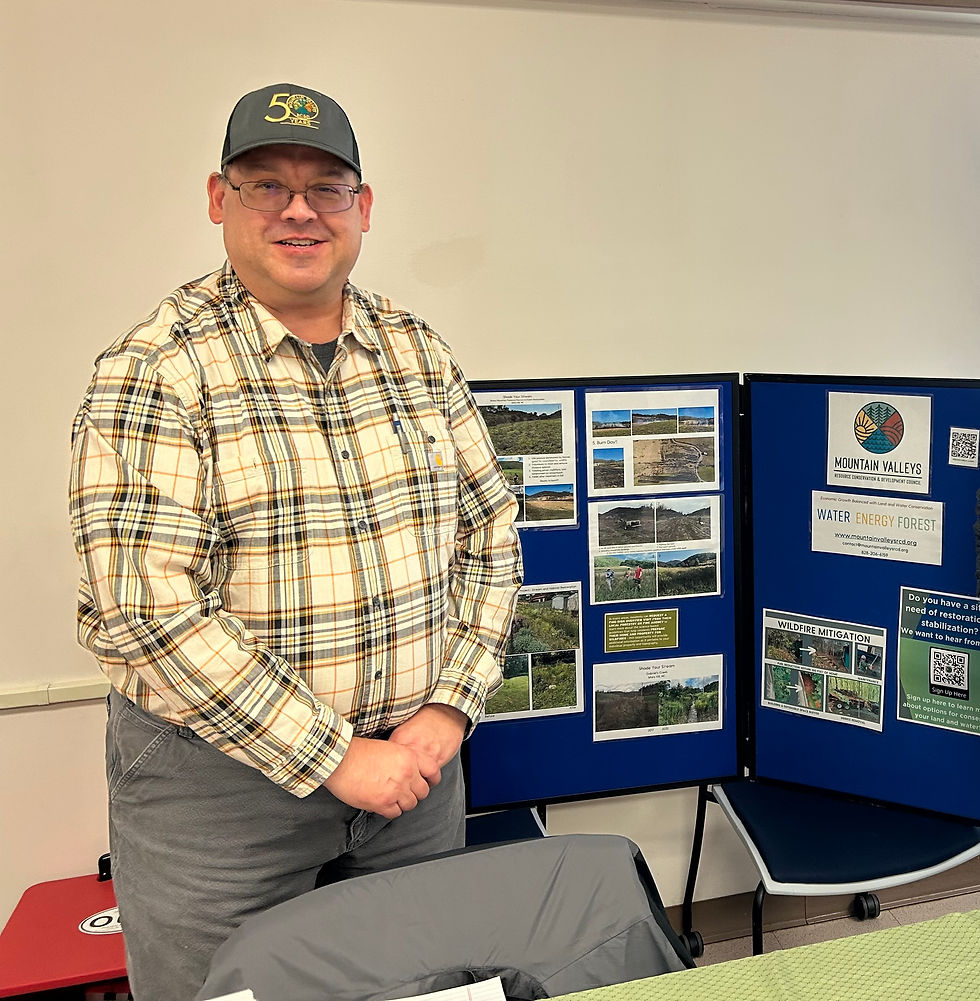Madison High Students Help Plant Natives on Marshall Island
- Mar 16, 2023
- 2 min read
Madison High School students from Chad Ayers agricultural classes joined us to beautify the island in Marshall with native plants. Prior to the planting day, we met the students at the high school to talk about the benefits of native streamside plantings. The roots from the plants will hold the soil in place to reduce erosion on the banks. This is good for combating land loss and preventing sediment from getting in our waterways. Sediment is the #1 water pollutant worldwide. Native plants have the added benefit of providing food and habitat for our native pollinators. Scientists are seeing a concerning decline in the number of pollinator species around the world. This has been attributed largely to habitat loss. Why is this concerning? According to the USDA Forest Service, most of our flowering plants and agricultural plants rely on pollinators. Simply put, we cannot live without them.
“About 80% of all flowering plants and over three-quarters of the staple crop plants that feed humankind rely on animal pollinators.” –USDA Forest Service
Our native pollinators require native host plants. They haven't adapted to feed on non-native plants. Research shows that even replacing a small section of your yard with native plants provides habitat that makes a difference. Ecologist and entomologist Doug Tallamy, cautions that focusing on providing habitat in our own backyards and communities is the only way to reverse the trend in pollinator decline. He says, "You are nature's only hope."
In all, we planted 1107 of plants along 1457 ft, including shrubs, trees, and grasses. We planted a diversity of 13 plants such as willow oak, beauty berry, coral berry, ninebark, pink muhly grass, and winterberry, that will attract a host of native wildlife. Oaks alone are a host to over 500 native species of wildlife "You can watch these plants grow over the years whenever you come to the island and think, 'I planted that,'" said Chad Ayers to his students. "Now that's something to be proud of."

Our project with the Town of Marshall on the island also includes removal of invasive plants that will eventually out compete the beneficial plants and planting of livestakes at the toe of the bank next to the waters edge. Livestakes are cuttings from dormant plants that will grow roots when placed in the soil correctly. Contracted work and a portion of the plants are being provided by Madison based, Wildbud Natives. Funding is being provided through a grant from the National Fish and Wildlife Foundation to the French Broad Partnership.













Comments